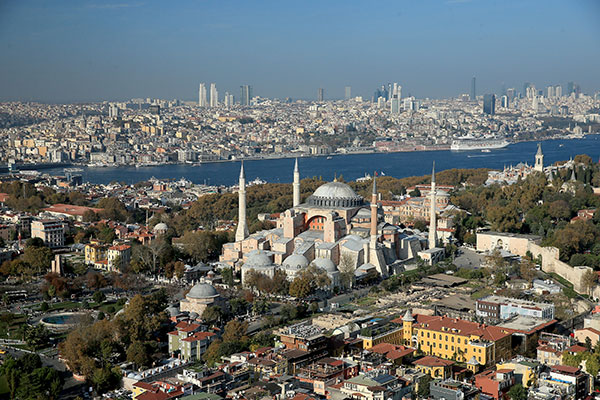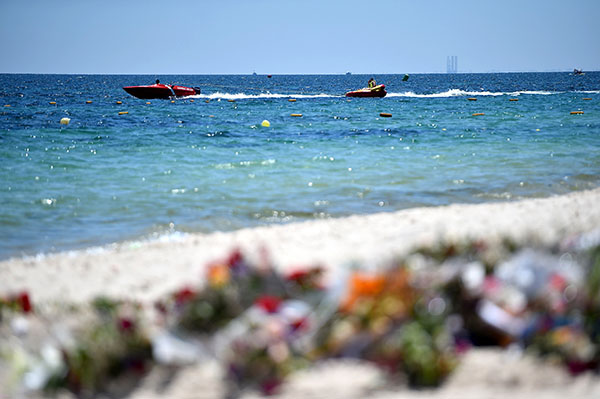AS millions of people across Britain and Ireland jet-off around the world for their summer holidays, it should be borne in mind that caution should be taken when visiting certain countries.
Britain’s Foreign and Commonwealth Office and the Department of Foreign Affairs and Trade in Ireland have updated their travel advice for tourists visiting these destinations.
The Irish Post has picked out some of the most important government recommendations for visitors heading to the following countries:
Tunisia
In light of the recent terrorist attack at Port El Kantaoui near Sousse on June 26, the following warnings should be considered:
- If you are in the area you should keep in touch with your tour operator and follow any advice from Tunisian security authorities.
- You should remain especially vigilant at this time as further terrorist attacks are likely.
You should avoid travelling to the following:
- the Chaambi Mountain National Park area
- the Tunisia-Algeria border crossing points at Ghardimaou, Hazoua and Sakiet Sidi Youssef
- the militarized zone south of, but not including, the towns of El Borma and Dhehiba
- within 5km of the Libya border area from north of Dhehiba up to but not including the Ras Ajdir border crossing
You should not travel to the following unless it is essential:
- areas south of, and including, the towns of Nefta, Douz, Médenine, Zarzis (including the Tunisia-Libya border crossing point at Ras Ajdir)
- within 30km of the border with Algeria south of, and including, the town of Jendouba (this area includes the archaeological sites of Bulla Regia and Chemtou)
- the governorate of Kasserine, including the town of Sbeitla

Greece
- When travelling outside of Britain and Ireland, you should take more than one means of payment with you (cash, debit card, credit card).
- Visitors should be aware of the possibility that some banking services throughout Greece could potentially become limited at short notice.
- Visitors can continue to withdraw up to your usual limit using a card issued outside Greece, as long as the ATM has been replenished.
- While banks are closed in Greece and some withdrawals are limited, make sure you take sufficient Euros in cash to cover the duration of your stay, emergencies, unforeseen circumstances and any unexpected delays.

Egypt
Due to the high terrorist threat, you should avoid travelling to the following:
- the Governorate of North Sinai
You should not travel to the following unless it is essential:
- the Governorate of South Sinai, with the exception of the area within the Sharm el Sheikh perimeter barrier, which includes the airport and the areas of Sharm el Maya, Hadaba, Naama Bay, Sharks Bay and Nabq
- within 50km of the border with Libya
- the area west of the Nile Valley and Delta Regions, excluding Siwa, Fayoum and the coastal areas
The areas that have been advised not to travel to unless it is essential, do not include the tourist areas along the Nile river (eg Luxor, Qina, Aswan, Abu Simbel and the Valley of the Kings) or the Red Sea Resorts of Sharm El Sheikh and Hurghada.

Turkey
It is advised that travel to within 10 km of the border with Syria should be avoided, as should the border with Iraq.
You should not travel to the following unless it is essential:
- the remaining areas of Sirnak, Mardin, Sanliurfa, Gaziantep, Kilis and Hatay provinces
- Siirt, Tunceli and Hakkari provinces

France
- There is a continued possibility of disruption to cross channel services due to industrial action, therefore, you should check online with your chosen operator and plan your journey accordingly.
- There are large numbers of illegal migrants in Calais, who may seek to enter the UK illegally. It is advised that you keep vehicle doors locked in slow moving traffic and secure your vehicle when it is left unattended.
- In light of an attack on June 26 at Saint Quentin Fallavier near Lyon, there is a high threat from terrorism. Due to on-going threats the French government has warned the public to be especially vigilant and has reinforced its security measures.
- The Emergency phone number in France is 112.


